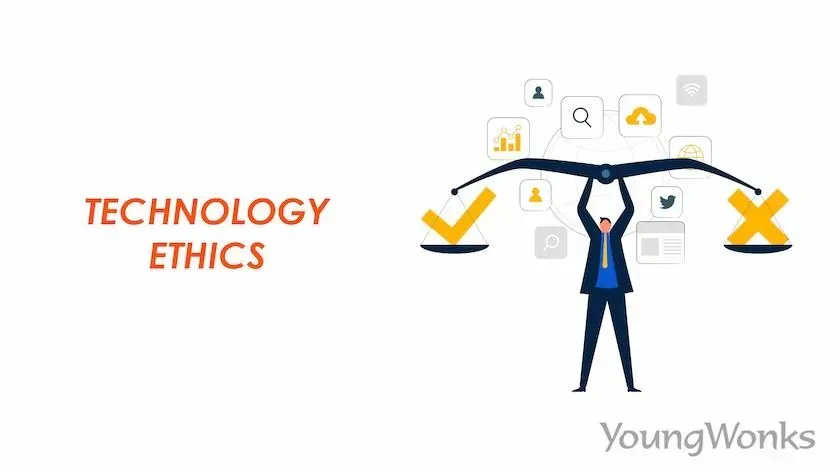Ethics in Technology is not a luxury reserved for regulators but a practical compass guiding how we design, deploy, and govern the digital tools shaping daily life. As devices become smarter and data flows accelerate, data privacy matters for preserving autonomy, guiding consent, transparency, and responsible data handling. Beyond privacy, the ethical implications of algorithms demand rigorous evaluation to ensure fairness and accountability in automated decisions. A focus on responsible innovation invites multidisciplinary teams to anticipate harms, balance opportunity with risk, and align products with public values. By weaving privacy considerations, fairness checks, and governance into everyday development, organizations can build trust and unlock sustainable, beneficial technology.
Ethics in Technology: Practical Frameworks for Privacy, Fairness, and Responsible Innovation
Ethics in Technology isn’t a luxury reserved for regulators; it’s a practical framework guiding how we design, deploy, and govern the digital tools that shape daily life. As devices become smarter and data moves more freely, privacy in tech concerns move from abstract debates into concrete decisions that affect individuals and communities. By translating core ideas from tech ethics into actionable practices, teams can align product goals with social values.
Operationalizing these ideas starts with privacy-by-design, data minimization, and clear data-use disclosures. Teams can implement secure-by-default configurations, granular user controls, and transparent consent mechanisms to address privacy in tech from ideation through deployment. When privacy is treated as a feature rather than an afterthought, products earn trust, meet data privacy expectations, and reduce the risk of breaches and reputational harm.
Privacy, Algorithmic Bias, and Governance: Building Trustworthy Tech
Ensuring trustworthy tech requires more than privacy protections; it demands attention to algorithmic bias and fair outcomes. By auditing training data for representativeness, evaluating models for disparate impact, and seeking explainability, organizations can align with tech ethics and reduce harms. This approach helps ensure that privacy, accuracy, and fairness coexist in automated decision systems.
Robust governance—ethics review boards, impact assessments, and transparent reporting—translates principles into practice. Clear accountability, remediation pathways, and diverse perspectives enable responsible innovation while protecting data privacy and reducing disparities in outcomes. Through governance trails and ongoing audits, teams demonstrate commitment to social value and sustained trust in technology.
Frequently Asked Questions
How does Ethics in Technology shape privacy in tech and data privacy in product design?
Ethics in Technology places privacy at the center of design and decision‑making. By applying privacy-by-design, data minimization, and transparent data‑use notices, teams treat privacy in tech as a foundational feature rather than an afterthought. Practically, this means conducting privacy impact assessments, obtaining clear user consent, and building secure‑by‑default data environments. Framing privacy as a governance and competitive differentiator helps organizations reduce risk, earn user trust, and enable responsible innovation while safeguarding data privacy.
How does governance and accountability address algorithmic bias within Ethics in Technology to support responsible innovation?
Algorithmic bias is a core concern of Ethics in Technology. Address it with diverse teams, representative data, and fairness‑focused evaluation across demographics. Ensure explainability and establish accountability through audits, impact assessments, and independent reviews. Governance pillars—transparency, participation, and remediation—guide decision‑making in tech ethics and responsible innovation, enabling more inclusive products and trusted outcomes.
| Topic | Key Points | Notes / Examples |
|---|---|---|
| Privacy in Technology | Privacy-by-design; data governance; consent and transparency; data minimization; secure-by-default; user controls; data retention; privacy standards; privacy as differentiator | Examples: data minimization; impact assessments; transparent data-use notices; opt-ins; secure-by-default configurations |
| Algorithmic Bias and Fairness | Bias arises from data, models, or processes; fairness across demographics; explainability and accountability; diverse teams; bias audits; mitigate bias | Examples: audit data representativeness; evaluate across contexts; publish limitations; embed fairness into goals; independent reviews |
| Responsibility, Governance, and Accountability | Governance structures (ethics review boards, impact assessments, transparent reporting); accountability beyond compliance; remediation; decision rationales | Notes: governance trails; roles of regulators, researchers, civil society; continuous monitoring |
| Practical Frameworks for Everyday Ethics in Tech | Ethics-by-design; data stewardship; impact assessments; fairness and auditing; explainability and disclosure; governance trails; adaptable tools | Notes: living tools; continuous improvement; align with product goals |
| Case Examples and Scenarios | Privacy-focused and bias-aware strategies; governance group; real-world examples (social platform, health-tech) | Outcomes: trust, sustainable innovation; demonstrate practical application |
| Overcoming Common Challenges | Time/budget pressures; ambiguity about harms; translating principles; limited diverse perspectives; solutions include playbooks, cross-functional teams, external experts | Approaches: define harm categories; action thresholds; incentives aligned with ethics |
| Measuring Success and Sustaining Momentum | Quantitative signals (privacy incidents, bias audits, remediation time, explainability) and qualitative feedback (user input, public sentiment, regulatory updates) | Leadership commitment; ongoing education; regular ethics training; cross-team knowledge sharing; continuous improvement culture |
Summary
Ethics in Technology is an ongoing journey that shapes how we design, deploy, and govern the digital tools that touch daily life. By centering privacy through design, rigorously evaluating fairness, and embedding governance into everyday practice, we can build trusted technologies that support people and society. This descriptive overview highlights how privacy, bias, and responsibility interconnect with data practices, algorithmic transparency, and responsible innovation to guide teams across product development, policy, and user engagement toward sustainable, beneficial outcomes.

